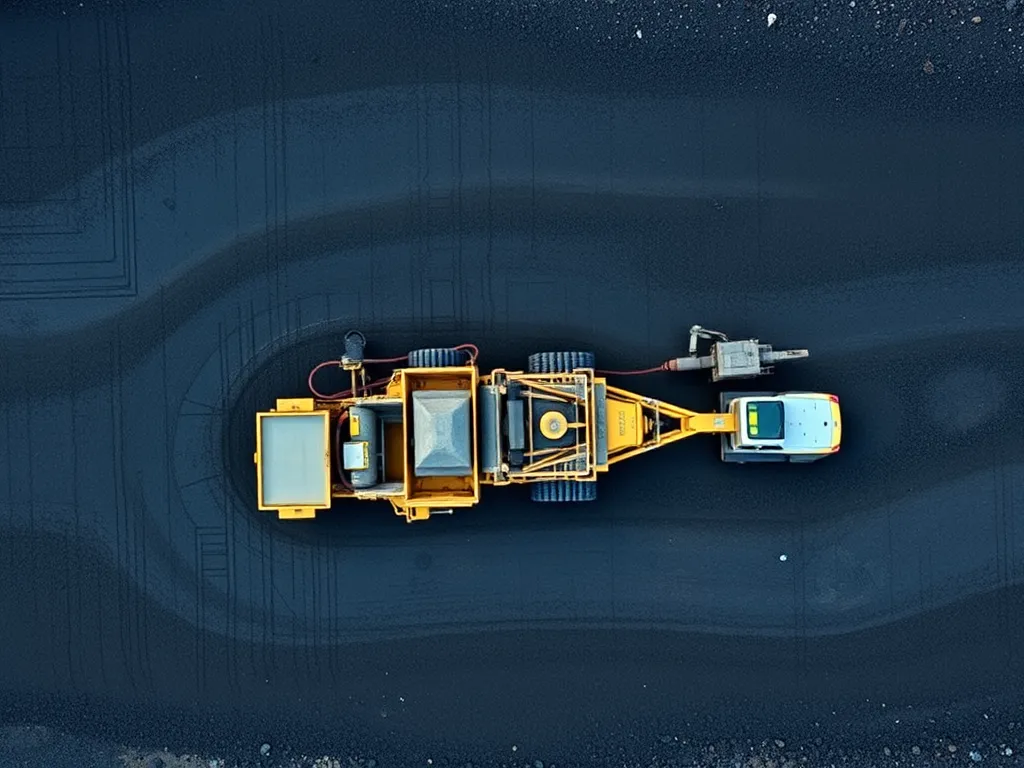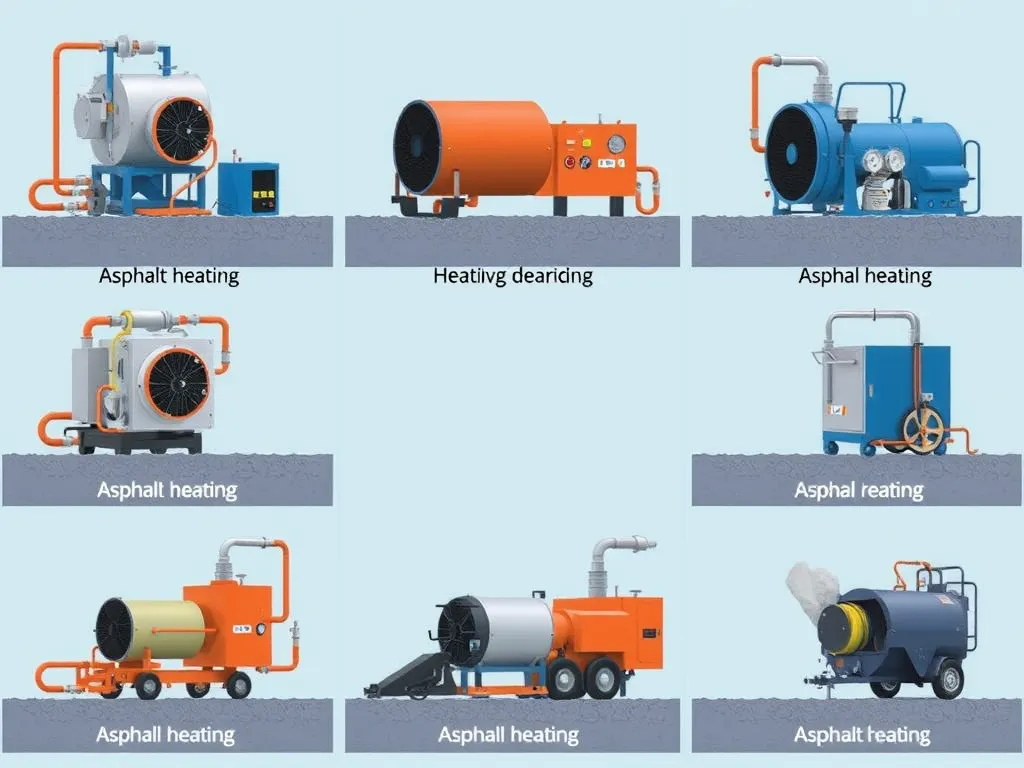Analyzing Asphalt Cost-effectiveness in Commercial Settings
Published on: April 8, 2025 | Last Updated: May 22, 2025
Written By: George Voss
Asphalt’s cost-effectiveness in commercial settings comes from low installation costs ($2-$5 per square foot), 15-20 year lifespan, and simple maintenance. Unlike concrete ($4-$10 per square foot), asphalt requires fewer repairs and allows faster installation—critical for minimizing business disruptions. Budget planning benefits from predictable upkeep: sealcoating every 3-5 years costs $0.15-$0.25 per square foot, preventing costly structural damage.
This article breaks down asphalt’s financial advantages for commercial projects. Compare material costs against concrete and alternatives. Explore how project size, regional pricing, and design choices impact budgets. Learn maintenance strategies to extend pavement life. Review real-world case studies from retail parking lots to industrial driveways. Get answers to common cost questions and pricing data for 2024 projects.
Contents
- Comparing Asphalt to Other Commercial Paving Materials
- Key Factors Influencing Commercial Asphalt Costs
- Commercial Asphalt Cost Analysis by Project Type
- Lifespan and Maintenance Impact on Cost-effectiveness
- Real-world Applications Of Cost-effective Asphalt
- Addressing Common Commercial Asphalt Cost Concerns
- FAQs: Asphalt Cost-effectiveness in Commercial Environments
- Closing Thoughts
- Additional Resources for You:
Comparing Asphalt to Other Commercial Paving Materials
Business owners weigh cost, use, and lifespan when picking paving. Asphalt and concrete lead the race. Each brings pros and cons for cash spent now versus later.
Cost Of Asphalt Vs. Concrete in Commercial Applications
Two costs matter: first install and long-term fixes. Asphalt often costs less up front. But concrete may need less care over time. For busy sites like lots or roads, speed and ease of fixes tilt the scale.
Initial Install Costs
Asphalt runs $2.50-$4.00 per sq ft. Concrete hits $4.00-$6.00. Why? Asphalt needs less prep, sets in 1-2 days. Concrete takes 7 days to cure. Crews work faster with asphalt, slashing labor fees. Hot mix asphalt (HMA) with PG 64-22 binder is common for its balance of flow and strength.
Long-Term Care Costs
Asphalt needs seal coats every 3-5 years ($0.15-$0.25 per sq ft). Small cracks get filled fast. Concrete may go 10+ years without care. But fixing cracks or slabs costs $2-$5 per sq ft. Over 20 years, asphalt costs 20-30% less. This makes it fit for sites that can’t shut down for weeks.
Next, we break down what shapes asphalt costs—from local price swings to job size.
Key Factors Influencing Commercial Asphalt Costs
Pricing for asphalt projects in business zones shifts with material quality, labor availability, and local market conditions. PG (Performance Graded) binders and aggregate mixes directly impact upfront costs and long-term functionality.
Material and Labor Costs
Asphalt mixtures containing polymer-modified binders typically add $1.50-$3.00 per square foot but boost crack resistance. Labor accounts for 35-45% of total project budgets, with crew rates varying from $45-$75 hourly based on location.
Regional Variations in Asphalt Pricing
- Southwest: $2.80-$4.20/sq ft
- Northeast: $3.60-$5.50/sq ft
- Midwest: $3.10-$4.80/sq ft
Impact of Project Scale on Asphalt Price per Square Foot
Projects spanning 10,000+ sq ft often cut costs by 12-18% through bulk material discounts. Hot-mix asphalt (HMA) production costs drop $8-$12 per ton for orders exceeding 500 tons.
Commercial Asphalt Cost Analysis by Project Type
Parking lots and driveways dominate business paving budgets, with design choices causing significant cost fluctuations.
Cost to Pave a Commercial Parking Lot
A 50,000 sq ft lot with 3″ base and 2″ surface layer runs $145,000-$240,000. Drainage systems add $0.80-$1.20/sq ft but prevent $15,000+ in water damage repairs over 10 years.
Average Asphalt Parking Lot Cost per Square Foot
Standard installations range $2.90-$4.80/sq ft. High-traffic zones using SMA (Stone Mastic Asphalt) mixes reach $5.20/sq ft but last 22-28 years with proper care.
Commercial Driveway Installation Costs
Industrial driveways require 6-8″ compacted bases to handle truck traffic, increasing material needs by 40% vs residential builds.
20×20 Driveway Cost in Commercial Settings
400 sq ft driveways average $1,600-$2,800. Using RAP (Recycled Asphalt Pavement) cuts costs 15-22% while maintaining 8,000-10,000 PSI strength ratings.
1/4 Mile Driveway Paving Cost Considerations
1,320-foot driveways (24′ width) require 950-1,100 tons of HMA. At $85-$120/ton installed, budgets typically hit $80,750-$132,000. Geotextile fabric underlayments add $0.35/sq ft but boost longevity.
Also See: Asphalt Technology in Emerging Economies: Future Outlook
Lifespan and Maintenance Impact on Cost-effectiveness
Properly maintained asphalt lasts 20-25 years in business zones – 3-5x longer than neglected surfaces. Annual upkeep averages $0.15-$0.30/sq ft vs $2.50-$4.00/sq ft for full replacements.
Typical Lifespan Of Commercial Asphalt Surfaces
High-traffic lots: 12-18 years Warehouse driveways: 15-22 years Service stations: 8-12 years
Preventative Maintenance Strategies to Reduce Costs
- Crack sealing ($0.10-$0.25/linear foot)
- Slurry sealing ($0.75-$1.40/sq ft)
- Infrared patching ($45-$65 per repair)
Overlay Vs. Full Replacement Cost Comparison
2″ overlays cost $1.80-$3.20/sq ft vs $3.50-$6.00/sq ft for full-depth reconstruction. Structural assessments using FWD (Falling Weight Deflectometer) testing ($1,200-$2,500) determine viable options.
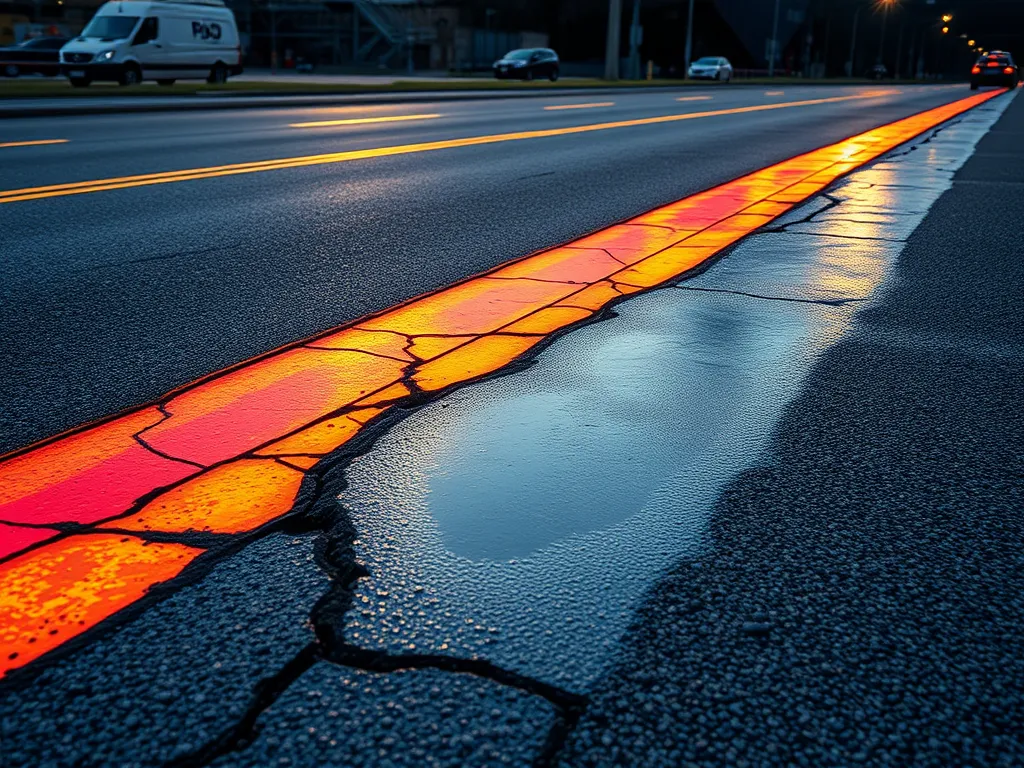
Real-world Applications Of Cost-effective Asphalt
Actual project data shows how strategic asphalt use cuts business costs while maintaining functionality.
Case Study: High-traffic Retail Parking Lot Installation
A Midwest shopping center saved 18% ($48,000) using a PG 76-22 binder mix on its 32,000 sq ft lot. The design handles 2,400 daily vehicles with 7-year warranty protection.
Case Study: Warehouse Facility Driveway Optimization
A Pennsylvania logistics hub reduced paving costs 27% by combining 30% RAP materials with 8″ crushed stone base. The $187,000 project withstands 80,000-pound trucks daily since 2018.
Addressing Common Commercial Asphalt Cost Concerns
Market shifts and project specs significantly affect budgeting accuracy for business paving jobs.
Current Asphalt Binder and Material Pricing
July 2024 spot prices: • PG 64-22: $585-$620/ton • #57 Stone: $18-$24/ton • Liquid Asphalt Cement: $680-$715/ton
Residential Vs. Commercial Asphalt Cost Differences
Business projects run 35-60% higher due to: • Thicker structural designs (6″ vs 3″ bases) • ADA-compliant features • Heavy-duty compaction requirements
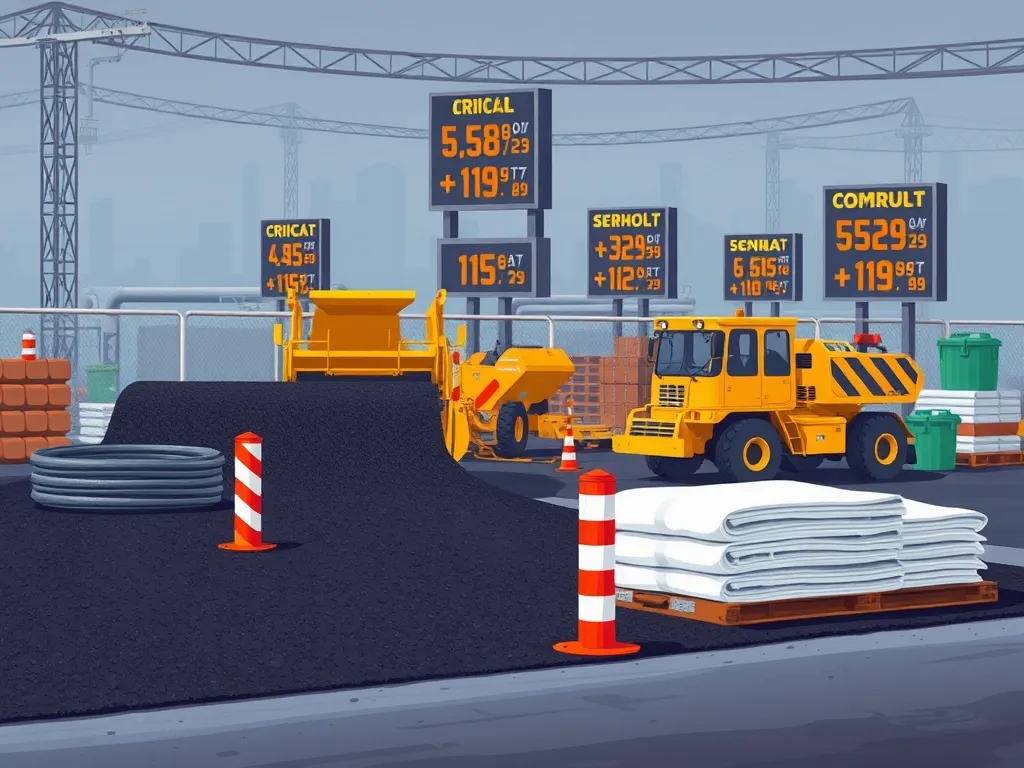
FAQs: Asphalt Cost-effectiveness in Commercial Environments
Is Asphalt Cost-effective for Commercial Applications?
Asphalt provides 40-50% lower initial costs vs concrete, with faster installation (2-4 days vs 7-10 days) reducing business downtime.
How Much Does Commercial Asphalt Cost Per Square Foot?
Current national averages: $3.20-$5.50/sq ft installed. Pricing includes 2″ surface, 4″ base, and compaction.
What is the Cost Difference Between Overlay and Replacement?
Overlays save 55-70% upfront but last 8-12 years vs 20+ years for full-depth builds. Life-cycle costing often favors full replacements for heavy-use zones.
How Does Asphalt Cost Compare to Concrete for Driveways?
Asphalt runs $3.50-$6.00/sq ft vs $8-$15 for concrete. Annual sealing adds $0.15/sq ft but prevents $2.80/sq ft in tripping hazard repairs.
What Factors Affect Commercial Asphalt Project Pricing?
- Local aggregate availability
- Fuel surcharges ($0.12-$0.18/ton/mile)
- Traffic control needs
- Drainage infrastructure
Upcoming analysis explores tax incentives and warranty options that further boost asphalt’s fiscal viability for business properties.
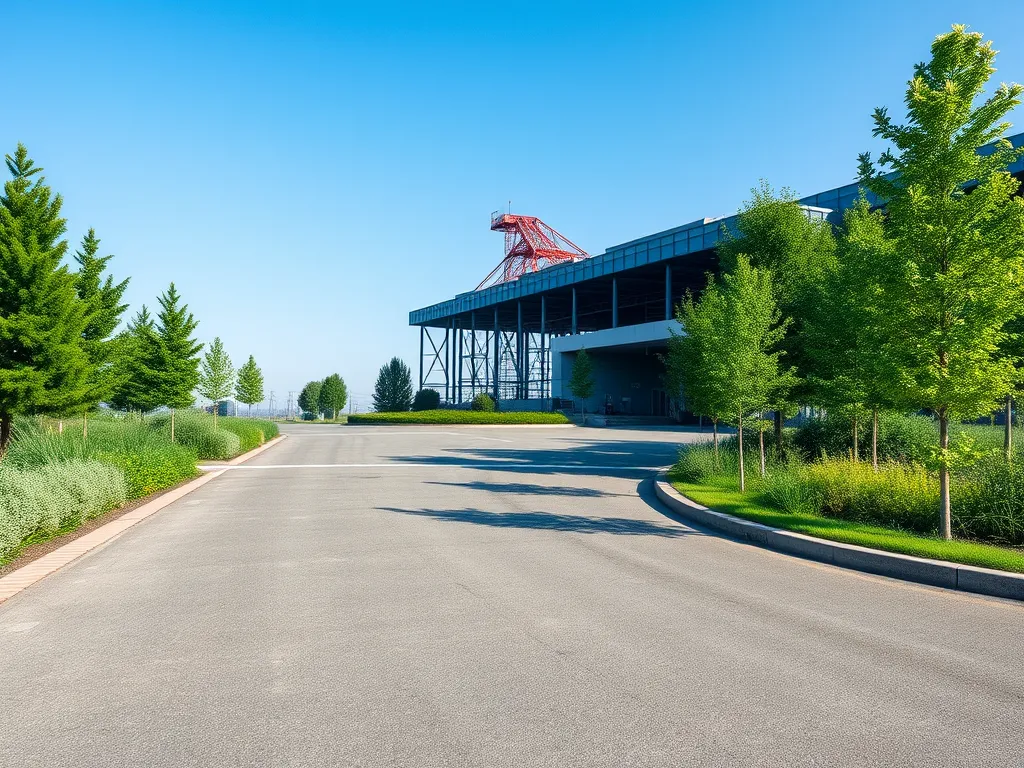
Closing Thoughts
Asphalt stands out as a cost-effective choice in commercial paving. Its initial installation costs are often lower than alternatives like concrete, and its maintenance is more manageable. Over time, asphalt delivers durability, making it an appealing option for businesses looking to optimize their investments.
Factors such as regional pricing variations and project scales play significant roles in determining overall costs. Understanding these elements helps businesses make informed decisions, ensuring they get the most value from their pavement projects.
From commercial parking lots to driveways, asphalt’s versatility shines through in real-world applications. With appropriate maintenance strategies, the lifespan of asphalt surfaces can be extended, further enhancing their cost-effectiveness.
For more insights and tools to help you with your asphalt projects, check out Asphalt Calculator USA. Make informed choices that benefit your budget and business in the long run.
Additional Resources for You:
- Huang, Y. H. (2004). Pavement Analysis and Design (2nd ed.). Upper Saddle River, NJ: Pearson/Prentice Hall.
- How to Calculate the Price of Asphalt
- Asphalt Pricing Factors: How Much Does Asphalt Cost?
- Current Asphalt Driveway Cost: A Comprehensive Pricing Guide for 2024 – Asphalt Industrial
- Commercial Asphalt Paving Cost: Expert Insights Compiled » All Star Contracting Services
Also See: Common Asphalt Maintenance Mistakes

